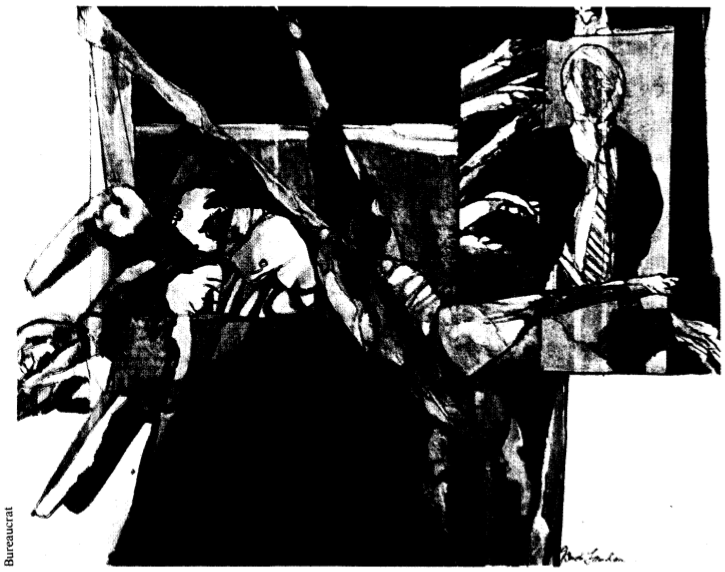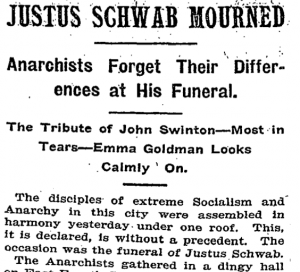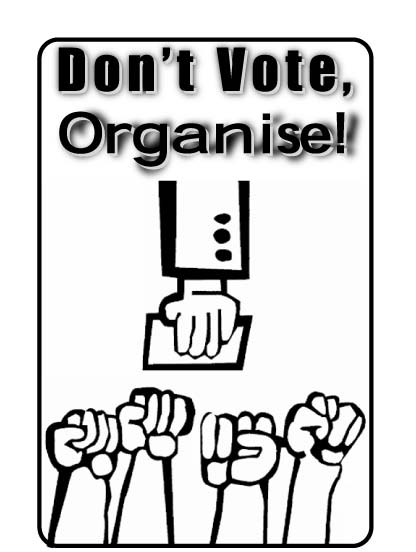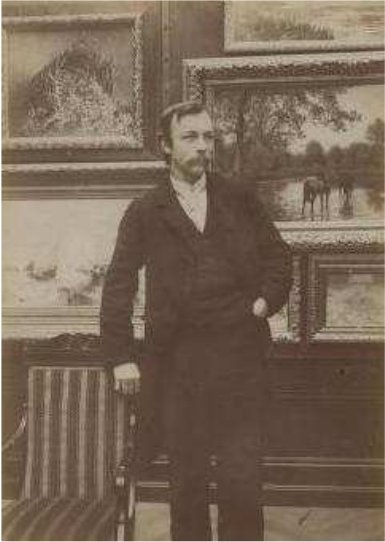
An Open Letter to Barry Goldwater
It probably isn’t the highest or hottest item on your agenda, but every now and then you might think about why we are now on opposite sides of the fence—or why the fence is growing more like a barricade every day. My side is what is loosely called the New Left, a position to which you will undoubtedly refer a thousand times in a thousand speeches but about which, if the present is an indication, you will know less and less the more often you mention it.
The thing that first attracted me to the New Left was the familiar ring of what was being said there. Decentralization. The return to the people of real political power—of all power. There was also something very attractive in the New Left’s analysis of the American corporate system and its use of political power to preserve and enlarge itself. The way the largest corporations had so strenuously opposed you and supported Johnson, for instance, certainly made it seem fruitful to ask why. Could it have been that you might not have played ball quite so well as he?
There was, of course, a seemingly dissonant sound in the New Left’s attitude toward American adventures abroad. You had championed, and I had fully seconded, the notion that, morally, American arms could and should be used anywhere to fend off incursions by THEM. The crucial question which I permitted, even forced, myself to ask—and which you must never face if you are to hold onto your position in regard to THEM—was simply Who are THEY?
And, lo and behold, THEY turned out to be a lot of US.
Let’s face it, we were trying to have it both ways. On the one hand, we spoke of freedom and liberty; on the other, of arming, adventuring, seeking and grasping. We spoke of a world that could not be half slave and half free, but we worked for a world that would be all American. We spoke of the evils of federal power but clucked approval at the same evils on a local scale. We spoke of letting the blacks in on our shuck, but when it came to liberation, we spoke of law and order.
Contradictions like these inevitably tear apart any structure—even a friendship, even a world—once you see them. Because you are, so far as my experience has permitted me to judge, the most essentially honest and potentially radical major American political figure, I am still betting that they could tear apart your position and that some day you will find yourself on this side of the barricades. As a matter of fact, the last time we met you were edging in this direction anyway. You described it yourself one day during your successful 1968 campaign for reelection to the Senate. We were in your living room, just shooting the shit. When the histories are written,
you said, I’ll bet that the old right and the New Left are put down as having a lot in common and that the people in the middle will be the enemy.
That’s right. They do and they are.
That same week, as I recall, you spoke at the University of Arizona where you said that you had much in common with the anarchist wing of SDS.
Anarchist! SDS! Remember? You said those words and you were not struck by lightning. And the point is that you have, or at least had, a lot in common with most of SDS. Now it’s probably their turn to snort in disbelief and even derision, and I do admit that I have passed over lightly such details as imperialism, but at least both of you—you then, SDS now—have sought to grasp certain political problems radically, by the roots.
Even before you made your speech about some commonality of interest with SDS, former SDS president Carl Oglesby knew that there was at least a historic echoing from the right of positions which have come to be regarded as New Leftist. Senator Taft, for instance, led the fight against NATO, making many of the same points that SDS makes on a broader scale about imperialism. I know that you departed long ago from a foreign policy position even roughly akin to Senator Taft’s, but perhaps knowing that the New Left’s position did not spring full-blown from the brow of Chairman Mao might at least let you examine, or re-examine, America’s role as the world’s policeman and protector of markets.
Why even bother with the suggestion? The answer is probably more romantic than reasonable. Common sense tells me that the rhetoric has ended and the revolution has begun. But nostalgia keeps suggesting that maybe we could speak for a minute and even agree that it would be far better, and so very much more decent, to give up power rather than having to go through, once again, the agony of having it taken away. I know you at least sensed this once as you contemplated the many changes you felt were inevitable and not very far off.
You caused virtual apoplexy among conservatives when you spoke, as you did in 1964, of the inevitability of world government, which you saw as developing through the political enlargement of such military arrangements as NATO. Your perception of change was right on. Your notion of how it would be accomplished, if you think about it (which I must admit too few of us did during the hectic days of the campaign), was a flat contradiction of your other principles—those regarding the return of political power to individuals. For a man as suspicious of central government as you were, the idea of accepting even the possibility of one huge, overall, overpowering government was 180 degrees off. Clarence Streit and other liberals thought it a silver lining in your otherwise cloudy aspect, of course. And there again you were quite correct in your perception: liberals are fatheads. The only thing worse than a big government is a bigger one!
It was the New Left that most sharply outlined the direction which was consistent with your root principles—decentralization. SDS’s early movement into neighborhood organizing was a manifestation of this. The current and, I think, monumentally significant work on neighborhood government by Milton Kotler—a colleague of mine at the Institute for Policy Studies—is more emphatically libertarian in nature than any single statement, action, stance or proposal of the entire Republican Party, with the Democrats thrown in to boot. And the present movement of SDS out into the neighborhoods, fields and factories, as well as into the schools, is deeply involved with putting power back where you, most emphatically of all working politicians, always said it belonged: in the hands of the people—not the people of some sociological abstraction, but the people in one-by-one, community-by-community reality.
In the long liberation of the blacks in this slave-haunted land, you also perceived a transfer of power as sharply as anyone—back then. You spoke of blacks having to have real political power before they could be free, and you risked and got a political mudbath by emphasizing that power far and beyond the then currently chic bullshit about bigger and better welfare checks, bigger and better federal fetters for a people already bloody from white, liberal legislation.
Today there are blacks who are putting into practice what you spoke about. They are struggling for real political power and they will get it even if they have to take it in combat. The Black Panthers are the vanguard of that struggle. Nineteen have died in it so far. They are in black reality the echo of a white past which you supposedly respect and even revere—the first American Revolution.
Senator, if you had been born black, and poor, you would now be a Panther or I seriously misjudge the strength of your character and convictions.
The Panthers are dying for the sort of liberty that you used to talk about. Dying, boss, not talking. Can’t you hear a brother’s voice even when it’s his last gasp? Extremism in the defense of liberty is no vice and moderation in the pursuit of justice is no virtue, and where in the name of Jefferson, Adams, and that grandfather of yours who said fuck foreign kings and wars and came to the U.S., where in all their names is there a more extreme grasp for liberty and justice than in this black colony now breaking away? Here are people who desperately needed some fellow extremist somewhere up there in hazy Washington to talk to, and all they heard was law and order, law and order, the clanking of cell doors, the thud of clubs and the crack of small arms fire.
There won’t be a chance to talk now because wars are much too loud. But while there was a chance, where were you? Where were we all—all of us who made our living talking about liberty, and then didn’t recognize it when it started flowering at our feet, because the petals were black and red and not red-white-and-blue.
I guess it would have been political suicide to talk to a Panther when you wanted to get back into the Senate. But you faced that once before and didn’t even flinch. Remember?
In 1964, it seemed as if there were a real possibility of racial trouble resulting from your campaign. I happen to think you are as color-blind as any man in American politics, but the image of your most red-necked followers blurred it all, and the race issue was a rising concern. To make matters worse, some of your most respected political advisors (real professionals) had talked long and loosely enough about the beneficial effects of racial disturbances on your candidacy to ring alarms for anyone. They claimed that one good race riot would put you in office. They knew, long before Spiro Agnew and probably as soon as George Wallace, that millions of white Americans were just bone scared of the black liberation movement and that it would take very little violence to shake out any government and put in any man with a tough reputation—and that’s just the kind you had.
I am convinced that, had it not been for one crucial action by you, efforts to incite racial trouble would have been inevitable. But you took the action, risking your entire candidacy as you did it. You called in some key reporters for an off-the-record briefing and made a single point: you said that if any racial trouble resulted from your candidacy, you would drop out of the race even if it were the day before the election. It was a flat unqualified pledge and I know you meant it. It not only stopped any insane incendiarism among your supporters, but it also put you on the line for killing your candidacy if there was trouble—whatever the cause.
You see, it’s things like that—the sort of gut courage and conviction that corporate liberals and the country club conservatives who so admire you couldn’t even imagine—that makes me miss you here on this side of the barricades.
But this side, you probably feel, is not anti-communist and you have spent an entire lifetime fighting Communism. Well, so had I. And because it was so easy just to fight, I had stopped thinking about what the hell it was we were fighting about in the first place. I would judge, by all I can read, that anti-communists today are operating almost exclusively from information, images and mind-sets formed in the Thirties and Forties.
Fresh from the horror of the purge trials, the slaughter in the Ukraine, the rise of Stalinism, it was easy to be anti-communist then. It was so easy, in fact, that it distorted the entire direction of the right in America. Its direction had been very individualistic, isolationist, decentralist—even anarchistic—and certainly radical compared to the corporate statism that had been rising ever since Herbert Hoover refined the process of federal rationalization of the economy.
Anti-communism twisted the direction of the right, which I feel, if left undisturbed, would today be near the New Left on most major issues. Unexamined anti-communism made possible these cop-outs: that the proper role of government could be the enhancement of industrial growth and corporate profit as a part of building a strong nation to beat back the Red peril; that citizenship training
had to be intensified, education redirected, and certain liberties foresworn in order to—dig it—preserve liberty.
I will bet you an autographed picture of Jerry Rubin against a Readers Digest flag decal that not one of your friends who are so oburatelyobdurately anti-communist today can honestly fill you in on the essential differences between communism in North Korea, Viet-Nam, and Cuba—and Russia. Between China and Poland, between Rumania and Hungary and so forth. And I would double the whole bet that they wouldn’t even know where to look to find out what the Panthers, SDS, and the New Left in general have to say about Soviet Communism, about small c
communism, about Marcuse, about anything.
Senator, the world has changed. The Provisional Revolutionary Government in South Viet-Nam (that’s our bunch, not yours) has issued a political platform which evidences much of the concern for individual liberty, freedom of trade and ownership of actually private property that Republicans used to rhapsodize about before they won political power. Have you read it? Or if you have read it but not believed it, have you actually tested your doubts?
I suppose that even mentioning Viet-Nam would cause you to stop reading this—if you’ve even begun. I know how deeply you feel about it, because once I did also and in just the same way. I’ll just sketch what happened and suggest that if you ever care to follow the same path, who knows, we might yet bump into each other again.
We thought that Viet-Nam was another case of international
communism trying to bend the free world’s borderlines. Diem was reisting THEM—a story that was easy to buy and impossible to prove. But in truth, the NLF was local, and was bent on pursuing justice for the South Vietnamese who were being stripped of land and political power by Diemist politicians. From there on, the errors were compounded.
You once said that it wasn’t worth a single American life just to save face
in Viet-Nam. But how many lives is it costing today to do just that? Today the face is Richard Nixon’s. Yesterday it was Lyndon Johnson’s. At least you took a crack or two at Lyndon. Is your friend Dick really any different? Or have you changed your mind about that fatal ratio between face and lives?
It occurs to me, Senator, that there is a document written by a fellow named Goldwater, an ex-Air Force general, that bears on this issue. It was a position paper you prepared for an Air Force project, as I recall. It discussed convergence between the communist and non-communist nations, but you didn’t see convergence as simply a matter of the two blocs coming together. You felt that perhaps as the communist bloc broke up and the demands of the people were felt, free institutions would develop strongly there, but that at the same time they might crumble in the other bloc. There could be a time, you felt, when Eastern Europe would be moving into freedom while America was sinking into tyranny.
Isn’t there something familiar going on today? Aren’t there in fact more difference between the communist parties of Eastern Europe than between, say, the Democrats and Republicans in this country? Aren’t we showing a tendency to side with the Soviets against dissident communist regimes—China being a foremost example? Isn’t there a revival among your very colleagues in the Senate and House of the security-law syndrome that did so little but hurt so much during the Fifties? Wasn’t there something more than just signpost sloganeering in the description of the Chicago police riot as Prague West? Isn’t Czechoslovakia just Russia’s Viet-Nam—not as brutal or bloody but just as politically obscene?
If you ever got a chance to read the New Left’s literature you might feel a jolt of recognition, page after page, as you found an analysis of the U.S.-U.S.S.R. detente that makes many of the points you once made. I can imagine that the word left
would turn you off; yet, in an historical sense, you were a prominent leftist when you attacked established power, as you used to attack it. You even wrote several times of your position as being classically liberal—classically, that is, leftist. Is it socialism that still haunts the phrase for you? It shouldn’t. You are now supporting an administration which is practicing the sort of industrial-military socialism that Bismarck developed. Is the socialism of, for instance, neighborhood control of the community’s resources really more frightening than that?
Which reminds me of Ocean Hill-Brownville, or People’s Park. Senator, they were doing just what you used to talk about. You should have been there. Your old ideas were.
You used to make the liberals froth when you spoke against federal influence in the schools. Federal money, you used to say, inevitably leads to federal pupils, and the liberals turned pale, threw up their dickies, and said you were a heartless monster. Well, they treated McCoy the same way at Ocean Hill when he said that his folks should run their own school and not your folks.
And your old buddy Ronald Reagan! Now there’s a lesson in liberty for you. On one side of People’s Park there is the State of California with its right of eminent domain. It took the land. I would say it stole the land. How, I wonder, do you describe the right of eminent domain? On the other side are people who have an exotic notion about ownership. They don’t think it should be exercised at the point of a gun or a bayonet. They worked that land. They homesteaded it. They owned it in a sense far deeper than any government proclamation. Think of it that way: a scrap of government paper on one side; real people on the other, and your old friend Ronald Reagan, so help us, now supporting that scrap of paper against the people, with as much bloodcurdling diligence as any man you ever fought in the political arena. Senator, are you really sure you want to be a deputy sheriff for state power? That’s just what you are on the other side of the fence at the People’s Park!
Student dissent generally? Why did you have to come down so solidly on the side of the police? Don’t you remember that they are the employees of the state, not the people? Why couldn’t we have heard your rebel voice, instead of your company manners, when push came to shove at Berkeley and Columbia? Wasn’t that a time to re-examine the entire structure of the system? Was there any more appropriate man to do it, after the years you had spent talking about the dangers of a schooling that might force people to conform rather than encourage them to think? Why couldn’t you, of all men, see what was on the other side of those broken windows on the campus?
We had a discussion once about the campus scene, and it seemed clear to me that you would be in a far different position as a student than you are as a senator. Not long ago, you reminded me, marijuana was as common a smoke as burley in the Southwest. Nobody thought much about it, you said. I don’t really know what you thought about it then, but I can’t imagine anyone else in the Senate with your sort of good, bull-headed devotion to politically inadvisable principles, who could better take the lead in stopping the insane rampage against young people going on across the country in connection with a drug which, you freely admit, was as common as and much less troublesome than whiskey back where you came from.
The draft is another raid on young people that you did take the lead on—once. It was your very first presidential campaign pledge. You didn’t bullshit about it. You said that as president you would end the draft. Period. Just end it. You didn’t fuzz it up with after the emergency
or after we study it, like your chum Dick. You may recall that the draft was the subject of our very last conversation. In preparation for your return to the Senate, I had worked up material for a flat-out repeal of the draft which, I felt, could appropriately be your first order of business when you were in the Senate and, hopefully, raising hell instead of brownie points.
I don’t cry about politics anymore, but if I did, I surely would have when you replied that in regard to anti-draft legislation you thought you should wait and see what Dick Nixon was going to do! You know what Dick Nixon always does! He shillies for a while. Then he shallies. Then he very carefully sets out in every direction at once, arriving exactly nowhere some time later, but promising that tomorrow he’ll begin again.
But, since you’ve returned to the Senate, it seems as if you are forever checking with someone to see if the coast is clear. You used to tell a joke about the little old lady you met in the hotel lobby who asked if you didn’t used to be Senator Goldwater. It’s getting less funny as time goes on. Something is happening out in the world, out on the streets. Much of it involves things you have said and thought throughout your life; much it involves things with which you profoundly disagree but which you should at least subject to a new dialogue. All of it involves a basic crisis, the sort of broken faith in state power that you have urged, the sharp awareness of the meaning of political power as the power of people against the power of overriding institutions. On the other hand (I mean the other side, your side now), there is ossification, resistance to radical change, support of vested power, liberal reformism, rule and repression by fiat and that most abhorrent of all organically collectivist notions—that the state really can and should claim the loyalty, blood and lives of all born to its borders and its bias.
Maybe that’s where you want to be after all. If I had only read about you, over the years, I would come to that conclusion and let the matter drop as being of little real importance. But instead, I have worked with you over the years. I think that even with the absolute disagreement I now have with you in regard to American imperialism, corporate-state capitalism, and anti-communism, there is such a crucial point of mutual interest on the New Left in regard to political power (it properly exists only in the people and in their communities) that you should be here and not over there. Because that’s where it’s at today, Senator. Here or there. The left of the individual people of this entire earth, taking back the power that the politicians and the exploiters stole from them, or the right of reaction, of established authority, of vested interests, of police, politics, and power.
There was a time when you used to drive the professional pols stark, staring mad because whenever you discovered that you had made a mistake on a position you would just come right out and say, Folks, I was wrong. Now here’s how it is.
Well, again, take a long, hard look at the contradictions between liberty at home, imperialism abroad; anti-colonialism abroad, black colonialism at home; free markets in the speeches, state-industrial-complex in the reality; local responsibility in the platforms, local suppression in the precinct houses; anti-communism for Castro, detente for Brezhnev; unshirted hell about welfare programs, unzippered lust for warfare programs.
I will have to admit that there is not exactly a long line queued up on the New Left waiting to hear from you. But there’s a hell of a lot more room for you over here, I would think, than in a Republican Party which regards Everett Dirksen as a hero and you as a maverick, respectable now only because you seem to have been broken to the bit.
In case you want to visit my side some time, there are a lot of pamphlets and things around that you might find interesting. And ideas. And, most of all, people. Good people. Love to see you over here. But if not, that’s okay. We’ll be up your way sooner or later anyway. See you. Right on.
Karl Hess is a former editor of Newsweek. He was the principal author of the 1960 Republican platform, a co-author of the 1964 platform, and Goldwater’s chief speech writer.




